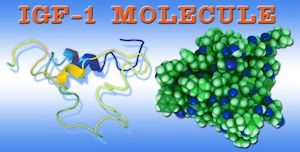Introduction
Low libido, or a reduced sexual desire, can be a concerning issue for many men, particularly those who lead active lifestyles as athletes. This phenomenon, while often overlooked, can significantly impact the quality of life and overall well-being of affected individuals. In this article, we delve into the medical intricacies behind low libido in male athletes, exploring the contributing factors, potential treatments, and the importance of addressing this issue head-on.
The Physiological Impact of Intense Training
Engaging in rigorous athletic training can have profound effects on the body's hormonal balance. Testosterone, a key hormone responsible for sexual desire, can be influenced by the stress and physical demands placed on an athlete's body. Prolonged intense exercise may lead to a temporary decrease in testosterone levels, which in turn can contribute to a diminished libido. Furthermore, the body's response to stress, including the release of cortisol, can disrupt the delicate hormonal equilibrium necessary for maintaining a healthy sex drive.
Nutritional Deficiencies and Their Role
Nutrition plays a pivotal role in overall health, including sexual function. Athletes, particularly those with demanding training schedules, may be at risk of developing nutritional deficiencies that can impact libido. For instance, inadequate intake of essential nutrients like zinc and vitamin D has been linked to lower testosterone levels. Ensuring a well-balanced diet that supports the body's needs is crucial for maintaining optimal sexual health.
The Psychological Aspect of Athletic Performance
The psychological toll of being an athlete should not be underestimated. The pressure to perform, coupled with the fear of injury or failure, can lead to significant stress and anxiety. These mental health challenges can directly affect sexual desire, as the mind plays a crucial role in sexual arousal and performance. Addressing these psychological factors through mindfulness, stress management techniques, or professional counseling can be beneficial in restoring libido.
Sleep: The Overlooked Factor
Quality sleep is essential for the body's recovery and hormonal regulation. Athletes often face challenges in getting adequate rest due to early morning training sessions or late-night competitions. Sleep deprivation can lead to hormonal imbalances, including reduced testosterone production, which can contribute to low libido. Prioritizing sleep hygiene and ensuring sufficient rest is a critical component of maintaining sexual health.
Medical Conditions and Medications
Certain medical conditions and medications can also play a role in low libido among athletes. Conditions such as hypogonadism, where the body does not produce enough testosterone, can directly impact sexual desire. Additionally, medications used to manage pain or inflammation, common among athletes, may have side effects that affect libido. It is important for athletes to discuss any concerns with their healthcare provider to explore potential underlying medical issues or medication-related causes.
Strategies for Addressing Low Libido
Addressing low libido in male athletes requires a multifaceted approach. Firstly, optimizing training regimens to include adequate rest and recovery periods can help mitigate the hormonal impact of intense exercise. Secondly, working with a nutritionist to ensure a diet that supports hormonal health is essential. Thirdly, incorporating stress management techniques and prioritizing mental health can address the psychological aspects of low libido. Lastly, consulting with a healthcare professional to rule out any underlying medical conditions or medication-related issues is crucial.
Conclusion
Low libido in male athletes is a complex issue influenced by a variety of physiological, nutritional, psychological, and medical factors. By understanding these contributing elements and adopting a comprehensive approach to health and wellness, athletes can work towards restoring their sexual desire and enhancing their overall quality of life. It is imperative for athletes to prioritize their sexual health as part of their broader commitment to physical and mental well-being.
Contact Us For A Fast And Professional Response

- The Evolution of Medical Science in Addressing Low Libido Problems [Last Updated On: March 2nd, 2025] [Originally Added On: March 2nd, 2025]
- Exploring Strategies to Enhance Male Libido: Hormonal, Psychological, and Lifestyle Interventions [Last Updated On: March 3rd, 2025] [Originally Added On: March 3rd, 2025]
- Understanding and Managing Low Libido in American Men [Last Updated On: March 4th, 2025] [Originally Added On: March 4th, 2025]
- Exploring Hormonal Influences on Male Libido: Causes, Symptoms, and Treatment Options [Last Updated On: March 5th, 2025] [Originally Added On: March 5th, 2025]
- Understanding and Addressing Low Libido in Men: Causes and Effective Treatments [Last Updated On: March 6th, 2025] [Originally Added On: March 6th, 2025]
- Managing Decreased Libido Post-Menopause: Understanding Causes and Effective Solutions [Last Updated On: March 7th, 2025] [Originally Added On: March 7th, 2025]
- Understanding Low Libido: Causes, Impacts, and Solutions for Men's Sexual Health [Last Updated On: March 8th, 2025] [Originally Added On: March 8th, 2025]
- Unraveling the Link: Anxiety and Its Impact on Male Libido in the American Population [Last Updated On: March 8th, 2025] [Originally Added On: March 8th, 2025]
- Impact of Mental Health on Men's Libido: Strategies for Comprehensive Care [Last Updated On: March 9th, 2025] [Originally Added On: March 9th, 2025]
- Revitalizing Intimacy: Strategies for Overcoming Low Libido in Long-term Relationships Among American Males [Last Updated On: March 11th, 2025] [Originally Added On: March 11th, 2025]
- Unraveling the Link Between Chronic Diseases and Low Libido in American Males: A Comprehensive Medical Insight [Last Updated On: March 12th, 2025] [Originally Added On: March 12th, 2025]
- Exploring Medical Interventions for Low Libido in Postpartum Women: A Guide for American Males [Last Updated On: March 13th, 2025] [Originally Added On: March 13th, 2025]
- Advancements in Treating Low Libido: Innovations and Personalized Medicine for American Males [Last Updated On: March 15th, 2025] [Originally Added On: March 15th, 2025]
- Physical Causes of Low Libido in American Males: Hormones, Health, and Lifestyle [Last Updated On: March 16th, 2025] [Originally Added On: March 16th, 2025]
- Medication-Induced Low Libido: Causes, Impacts, and Management Strategies for American Men [Last Updated On: March 17th, 2025] [Originally Added On: March 17th, 2025]
- Understanding and Treating Low Libido in Men: A Comprehensive Guide [Last Updated On: March 17th, 2025] [Originally Added On: March 17th, 2025]
- Exploring Causes and Treatments for Low Libido in American Men [Last Updated On: March 18th, 2025] [Originally Added On: March 18th, 2025]
- Psychological Factors Impacting Low Libido in American Males: Stress, Depression, and More [Last Updated On: March 20th, 2025] [Originally Added On: March 20th, 2025]
- Low Libido in American Males: Health Risks and the Importance of Seeking Help [Last Updated On: March 20th, 2025] [Originally Added On: March 20th, 2025]
- Natural Supplements for Low Libido: Prospects and Benefits for American Men [Last Updated On: March 20th, 2025] [Originally Added On: March 20th, 2025]
- Exploring the Link Between Low Libido and Depression in American Men [Last Updated On: March 20th, 2025] [Originally Added On: March 20th, 2025]
- Hyperthyroidism's Impact on Libido in American Males: Causes, Effects, and Management [Last Updated On: March 20th, 2025] [Originally Added On: March 20th, 2025]
- Advances in Treating Low Libido: Hormonal, Psychological, and Lifestyle Innovations for Males [Last Updated On: March 21st, 2025] [Originally Added On: March 21st, 2025]
- Low Libido in American Males During Partner's Lactation: Causes and Solutions [Last Updated On: March 21st, 2025] [Originally Added On: March 21st, 2025]
- Managing Medication-Induced Low Libido: Causes, Strategies, and Solutions for Men [Last Updated On: March 21st, 2025] [Originally Added On: March 21st, 2025]
- Understanding and Treating Low Libido in American Males: A Holistic Approach [Last Updated On: March 22nd, 2025] [Originally Added On: March 22nd, 2025]
- Chronic Illness Impact on Libido: Strategies for American Males [Last Updated On: March 22nd, 2025] [Originally Added On: March 22nd, 2025]
- Diabetes and Low Libido in American Men: Causes, Management, and Emerging Therapies [Last Updated On: March 23rd, 2025] [Originally Added On: March 23rd, 2025]
- Exploring Treatments for Low Libido in American Males: Hormonal, Pharmacological, and Psychological Approaches [Last Updated On: March 23rd, 2025] [Originally Added On: March 23rd, 2025]
- Exploring Medical Interventions for Low Libido in American Males [Last Updated On: March 24th, 2025] [Originally Added On: March 24th, 2025]
- Understanding Low Libido in Men: Causes and Effective Solutions [Last Updated On: March 24th, 2025] [Originally Added On: March 24th, 2025]
- Low Libido in Middle-Aged Men: Causes, Treatments, and Future Innovations [Last Updated On: March 24th, 2025] [Originally Added On: March 24th, 2025]
- Understanding and Treating Low Libido in American Males: Causes and Solutions [Last Updated On: March 24th, 2025] [Originally Added On: March 24th, 2025]
- Childbirth's Impact on Male Libido: Understanding and Reviving Intimacy in American Men [Last Updated On: March 25th, 2025] [Originally Added On: March 25th, 2025]
- Understanding and Addressing Low Libido in American Males: A Comprehensive Guide [Last Updated On: March 25th, 2025] [Originally Added On: March 25th, 2025]
- Sudden Low Libido in American Males: Causes and Solutions [Last Updated On: March 25th, 2025] [Originally Added On: March 25th, 2025]
- Low Libido in American Men: Causes, Impacts, and Treatment Options [Last Updated On: March 25th, 2025] [Originally Added On: March 25th, 2025]
- Alcohol's Impact on Libido: Insights for American Men's Sexual Health Management [Last Updated On: March 25th, 2025] [Originally Added On: March 25th, 2025]
- Low Libido in American Males: Treatments, Risks, and Side Effects Overview [Last Updated On: March 25th, 2025] [Originally Added On: March 25th, 2025]
- Understanding and Addressing Low Libido in American Men: Causes, Impacts, and Solutions [Last Updated On: March 25th, 2025] [Originally Added On: March 25th, 2025]
- Understanding and Overcoming Low Libido in American Males: Causes and Solutions [Last Updated On: March 25th, 2025] [Originally Added On: March 25th, 2025]
- Understanding and Overcoming Low Libido in American Men: Causes and Solutions [Last Updated On: March 25th, 2025] [Originally Added On: March 25th, 2025]
- Understanding and Addressing Low Libido in American Men: Causes and Solutions [Last Updated On: March 26th, 2025] [Originally Added On: March 26th, 2025]
- Understanding and Treating Low Libido in American Men: Causes and Solutions [Last Updated On: March 26th, 2025] [Originally Added On: March 26th, 2025]
- Low Libido in American Males: Medical Causes, Impacts, and Treatment Options [Last Updated On: March 26th, 2025] [Originally Added On: March 26th, 2025]
- Pain Disorders and Low Libido in Men: Understanding the Connection and Management [Last Updated On: March 26th, 2025] [Originally Added On: March 26th, 2025]
- Medical Patterns and Interventions for Low Libido in Young American Males [Last Updated On: March 26th, 2025] [Originally Added On: March 26th, 2025]
- Low Libido in Male Surgical Patients: Causes, Management, and Holistic Recovery Strategies [Last Updated On: March 26th, 2025] [Originally Added On: March 26th, 2025]
- Low Libido in American Males: Hormonal, Pharmacological, and Holistic Treatment Approaches [Last Updated On: March 26th, 2025] [Originally Added On: March 26th, 2025]
- Restoring Libido in American Males Post-Chemotherapy: Medical and Holistic Approaches [Last Updated On: March 26th, 2025] [Originally Added On: March 26th, 2025]
- Understanding and Addressing Low Libido in Women Over 50: A Guide for Men [Last Updated On: March 26th, 2025] [Originally Added On: March 26th, 2025]
- Understanding and Treating Low Libido in American Males: Medical Insights and Interventions [Last Updated On: March 26th, 2025] [Originally Added On: March 26th, 2025]
- Understanding and Treating Low Libido in American Men: Causes and Solutions [Last Updated On: March 26th, 2025] [Originally Added On: March 26th, 2025]
- Post-Surgery Low Libido in Men: Causes, Management, and Recovery Strategies [Last Updated On: March 26th, 2025] [Originally Added On: March 26th, 2025]
- Understanding Low Libido in American Women: Causes, Impacts, and Treatment Options [Last Updated On: March 27th, 2025] [Originally Added On: March 27th, 2025]
- Lifestyle Changes to Boost Libido in American Men: Diet, Exercise, Sleep, and More [Last Updated On: March 27th, 2025] [Originally Added On: March 27th, 2025]
- Exploring Causes and Solutions for Low Libido in American Men [Last Updated On: March 27th, 2025] [Originally Added On: March 27th, 2025]
- Post-Pregnancy Libido Decline in American Males: Causes and Solutions [Last Updated On: March 27th, 2025] [Originally Added On: March 27th, 2025]
- Chronic Low Libido in American Males: Causes, Signs, and Treatment Options [Last Updated On: March 27th, 2025] [Originally Added On: March 27th, 2025]
- Understanding and Treating Low Libido in American Men: Causes and Solutions [Last Updated On: March 28th, 2025] [Originally Added On: March 28th, 2025]
- Age-Related Low Libido in Men: Causes, Treatments, and Future Therapies [Last Updated On: March 28th, 2025] [Originally Added On: March 28th, 2025]
- Low Libido and Weight Gain in American Males: Exploring Physiological and Psychological Links [Last Updated On: March 28th, 2025] [Originally Added On: March 28th, 2025]
- Low Libido and Unhappiness in American Men: Causes, Impacts, and Solutions [Last Updated On: March 29th, 2025] [Originally Added On: March 29th, 2025]
- Hypertension's Impact on Libido: Management Strategies for American Men [Last Updated On: March 30th, 2025] [Originally Added On: March 30th, 2025]
- Revitalizing Male Libido: Hormonal, Psychological, and Lifestyle Strategies [Last Updated On: March 31st, 2025] [Originally Added On: March 31st, 2025]
- Exploring Low Libido in American Males: Causes, Research, and Effective Treatments [Last Updated On: April 2nd, 2025] [Originally Added On: April 2nd, 2025]
- Antidepressants and Low Libido: Impact and Management Strategies for American Males [Last Updated On: April 2nd, 2025] [Originally Added On: April 2nd, 2025]
- Medical Causes and Strategies for Combating Low Libido in American Men [Last Updated On: April 3rd, 2025] [Originally Added On: April 3rd, 2025]
- Exploring Causes and Solutions for Low Libido in American Males [Last Updated On: April 6th, 2025] [Originally Added On: April 6th, 2025]
- Medical Factors Impacting Low Libido in Women Under 40 in the U.S. [Last Updated On: April 6th, 2025] [Originally Added On: April 6th, 2025]
- Addressing Low Libido in American Males: Causes, Impacts, and Solutions [Last Updated On: April 6th, 2025] [Originally Added On: April 6th, 2025]
- Medical Procedures Impacting Male Libido: Causes and Management Strategies [Last Updated On: April 8th, 2025] [Originally Added On: April 8th, 2025]
- Addressing Low Libido in American Males: Causes, Impacts, and Solutions [Last Updated On: April 8th, 2025] [Originally Added On: April 8th, 2025]
- Addressing Low Libido in American Men: Causes, Treatments, and Holistic Approaches [Last Updated On: April 9th, 2025] [Originally Added On: April 9th, 2025]
- Understanding Low Libido in American Men: Hormonal, Psychological, and Lifestyle Factors [Last Updated On: April 10th, 2025] [Originally Added On: April 10th, 2025]
- Medical Causes of Persistent Low Libido in American Men: Insights and Treatments [Last Updated On: April 10th, 2025] [Originally Added On: April 10th, 2025]
- Understanding and Managing Low Libido in Men: Causes, Strategies, and Support [Last Updated On: April 10th, 2025] [Originally Added On: April 10th, 2025]
- Understanding and Diagnosing Low Libido in American Men: A Comprehensive Guide [Last Updated On: April 12th, 2025] [Originally Added On: April 12th, 2025]
- Medical Insights into Low Libido: Hormones, Conditions, and Treatments in American Men [Last Updated On: April 13th, 2025] [Originally Added On: April 13th, 2025]
- Understanding and Treating Low Libido in American Men: Medical and Lifestyle Approaches [Last Updated On: April 13th, 2025] [Originally Added On: April 13th, 2025]

















